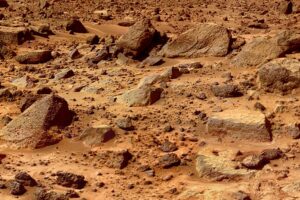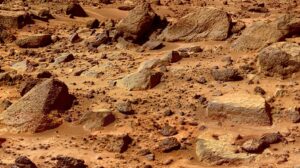Kidneys Under Pressure: Understanding Hypertension and Its Impact on Renal Function
Introduction
Hypertension, commonly known as high blood pressure, is often dubbed the "silent killer," as it frequently goes undetected until significant damage has occurred. Its effects can be particularly pronounced on the kidneys, which play a crucial role in filtering waste and regulating various bodily functions. Understanding the interplay between hypertension and renal function is essential for preventing kidney disease and ensuring overall health.
This comprehensive article aims to explore hypertension in detail, focusing on its causes, effects on kidney health, and the relationship between the two conditions. We will delve into preventative measures, lifestyle changes, and treatment options to address hypertension and promote renal well-being.
Understanding Hypertension
What is Hypertension?
Hypertension is defined as consistently elevated blood pressure, typically categorized as having a systolic reading (the top number) of 130 mmHg or higher or a diastolic reading (the bottom number) of 80 mmHg or higher. Blood pressure is measured in millimeters of mercury (mmHg), and any reading beyond these thresholds signals a need for medical intervention.
Types of Hypertension
-
Primary Hypertension
- Also known as essential hypertension, this type accounts for about 90-95% of cases. The exact cause isn’t known but is thought to involve genetic, environmental, and lifestyle factors.
- Secondary Hypertension
- This form results from an underlying condition, such as kidney disease, adrenal gland disorders, or certain medications. Tackling the root cause often resolves the hypertension.
Causes and Risk Factors
Hypertension can result from multiple factors, including:
- Genetics: Family history can play a significant role.
- Age: Risk increases as individuals age.
- Obesity: Excess weight can raise blood pressure.
- Diet: High sodium intake and low potassium consumption can contribute.
- Physical inactivity: Sedentary behavior is linked to higher blood pressure.
- Alcohol and tobacco use: Both substances can elevate blood pressure.
Symptoms
Hypertension is often asymptomatic. However, when symptoms do manifest, they can include:
- Headaches
- Shortness of breath
- Nosebleeds
- Dizziness
Regular monitoring is essential for early detection.
The Impact of Hypertension on Renal Function
Understanding Kidney Function
The kidneys are vital organs that serve several essential functions:
- Filtration: They filter blood to remove waste products and excess substances, producing urine.
- Regulation of electrolytes: Kidneys help maintain a balance of minerals and electrolytes, such as sodium and potassium.
- Acid-base balance: They help keep the body’s pH within a narrow range.
- Blood pressure regulation: The kidneys release hormones that play a crucial role in managing blood pressure, creating a feedback loop.
How Hypertension Affects the Kidneys
Chronic hypertension can lead to renal damage through the following mechanisms:
-
Glomerular Damage
- Increased pressure damages the glomeruli, the kidney’s filtering units, leading to protein leakage into the urine (proteinuria) and compromised filtration.
-
Vascular Changes
- Hypertension leads to changes in the kidney’s blood vessels, causing stiffness and narrowing, which impedes blood flow and oxygen delivery.
-
Interstitial Fibrosis
- High pressure can stimulate fibrosis, where healthy kidney tissue is replaced with scar tissue, resulting in a decline in renal function.
- Renal Artery Stenosis
- Narrowing of the renal arteries due to atherosclerosis can lead to decreased blood supply and further exacerbate hypertension.
Consequences of Renal Damage Due to Hypertension
-
Chronic Kidney Disease (CKD)
- Prolonged hypertension is one of the leading causes of CKD, resulting in a gradual decline in kidney function that may progress to end-stage renal disease (ESRD).
- Increased Cardiovascular Risk
- There is a bidirectional relationship between hypertension and kidney disease, leading to an elevated risk of heart disease and stroke.
Diagnosing Hypertension and Kidney Damage
Monitoring Blood Pressure
Regular blood pressure screenings are crucial. At-home monitoring devices can help individuals keep track of their readings and identify trends.
Laboratory Tests
-
Blood Tests
- These can evaluate kidney function by measuring creatinine, blood urea nitrogen (BUN), and electrolytes.
-
Urinalysis
- This test checks for the presence of protein or blood in the urine, which may indicate kidney damage.
- Imaging Studies
- Ultrasounds or CT scans can assess kidney structure and the presence of abnormalities.
Managing Hypertension to Protect Kidney Function
Lifestyle Changes
-
Dietary Modifications
- DASH Diet: Emphasizing fruits, vegetables, whole grains, and low-fat dairy products can help lower blood pressure.
- Reduce Sodium Intake: Limiting sodium to 2,300 mg per day—or even 1,500 mg for those with hypertension—can greatly impact blood pressure levels.
-
Physical Activity
- Regular exercise can significantly lower blood pressure and promote heart and kidney health.
-
Weight Management
- Achieving and maintaining a healthy weight can alleviate pressure on the kidneys.
- Stress Management
- Techniques such as mindfulness meditation, yoga, and deep-breathing exercises can help manage stress, which is a contributing factor to hypertension.
Pharmacological Treatments
Hypertensive patients often require medications to control their blood pressure. Common classes of antihypertensives include:
-
ACE Inhibitors
- These medications help relax blood vessels, improving blood flow and reducing blood pressure. They are also protective for kidney function.
-
Angiotensin II Receptor Blockers (ARBs)
- Similar to ACE inhibitors, these drugs block the effects of a hormone that constricts blood vessels, reducing pressure and protecting the kidneys.
-
Diuretics
- Often termed "water pills," these medications help the body eliminate excess fluid, reducing blood pressure.
- Calcium Channel Blockers
- These drugs relax blood vessels and decrease heart rate, lowering blood pressure.
Monitoring and Follow-Up
Regular follow-up appointments are essential to assess kidney function and adjust treatment plans as necessary. Blood tests and urinalysis should be scheduled periodically to monitor any changes.
Preventing Hypertension and Protecting Kidney Function
Education and Awareness
Increasing public awareness of the risks associated with hypertension and its impact on renal health is crucial. Community programs that offer screenings, educational workshops, and resources for healthy living can help reduce the prevalence of hypertension.
Regular Screenings for High-Risk Populations
Individuals with a family history of hypertension, diabetes, or existing kidney disease should undergo regular screenings to facilitate early detection and intervention.
Conclusion
Hypertension poses a significant threat to kidney health and overall well-being. Understanding its impact on renal function and taking proactive measures to manage blood pressure can significantly reduce the risk of kidney disease and improve quality of life. Through lifestyle changes, medical management, and regular monitoring, individuals can successfully navigate the challenges posed by hypertension and protect their kidneys from damage.
References
[ 1 ] Whelton, P.K., Carey, R.M., Aronow, W.S., et al. 2018. "Guidelines for the Management of High Blood Pressure in Adults: A Report from the American College of Cardiology/American Heart Association Task Force on Clinical Practice Guidelines." Hypertension. 71(6): e13–e115. [ 2 ] Kearney, P.M., Whelton, M., Reynolds, K., et al. 2005. "Global burden of hypertension: analysis of worldwide data." The Lancet. 365(9455): 217-223. [ 3 ] James, P.A., Oparil, S., Carter, B.L., et al. 2014. "2014 Evidence-Based Guidelines for the Management of High Blood Pressure in Adults: Report from the Panel Members Appointed to the Eighth Joint National Committee (JNC 8)." JAMA. 311(5): 507-520. [ 4 ] Mente, A., de Koning, L., Shannon, H.S., et al. 2009. "A systematic review of the evidence supporting a causal link between dietary factors and coronary heart disease." Archives of Internal Medicine. 169(7): 638-648. [ 5 ] Mottl, A.K., and Granger, S.W. 2009. "Effects of hypertension on kidney function." Nature Reviews Nephrology. 5(2): 78-89.This overview touches on the essential aspects of understanding hypertension and its impact on renal function, aiming to provide valuable information to individuals seeking to protect their kidneys and maintain a healthy blood pressure. Regular monitoring, lifestyle changes, and appropriate medical interventions are critical in managing both hypertension and kidney health effectively.
(Note: The article above is a condensed version for illustrative purposes. A full-length article would include more in-depth discussion, more comprehensive references, and additional case studies or testimonials to enrich the content.)

























Add Comment